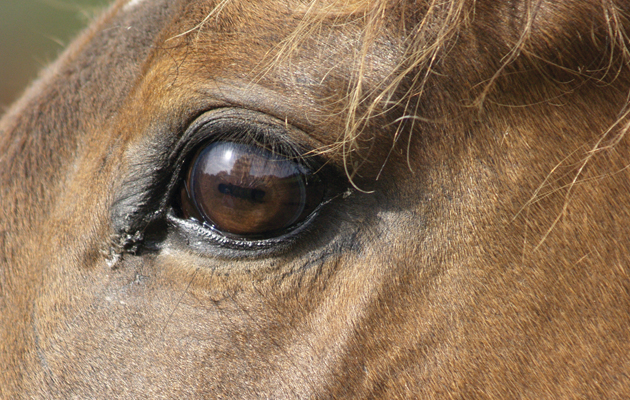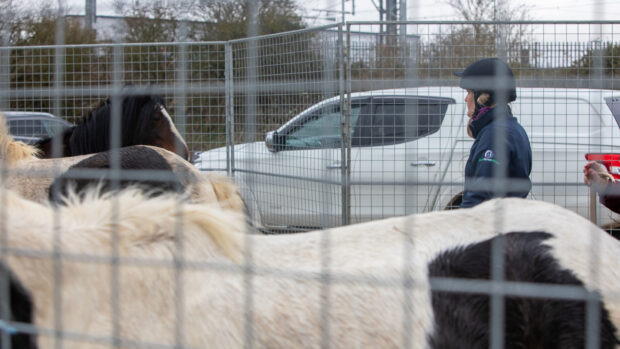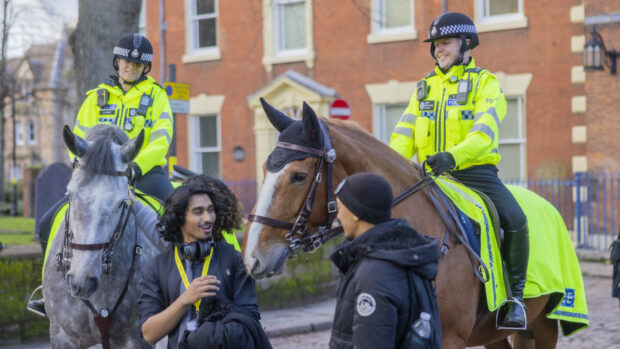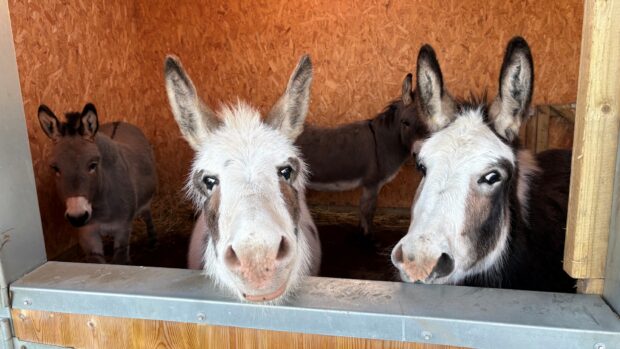Improved equine welfare standards are on the cards thanks to a landmark resolution made by the European parliament earlier today (14 March).
The proposals from MEP Julie Girling were passed by a large majority and cover horses, donkeys and mules used in a broad range of activities, from farming to tourism.
The report will now be passed to the European Commission with a recommendation for action.
Proposals include a shorter maximum journey time for all movements of horses for slaughter and a commitment by member states to inspect slaughterhouses licensed to handle horses; the dissemination of information to tourists to help them decide whether to use services involving working horses and donkeys; and new guidance on donkey and horse milk farming and increased inspections of farms.
The report also called for production and circulation by the European Commission of information on how to care for horses and donkeys, including responsible breeding and end of life care, as well as a review of the impact of VAT on equestrian enterprises.
“Horses and donkeys have come to possess vast economic potential,” said Mrs Girling.
“Today the equine sector adds more than €100bn to the EU’s economy each year and is a leading rural employer in many member states.
“However, in too many cases these animals are faced with severe welfare concerns including neglect, overwork and inappropriate living conditions.
“Europe’s citizens want to see more action on animal welfare and, with this report, I believe we have a golden opportunity to not only substantially improve the lives of seven million horses and donkeys but, by better caring for these animals, we also have a chance to unlock the full economic potential of the sector and boost the rural economy.
“It is a win-win situation for everyone involved.”
Europe’s top equine welfare organisations, including World Horse Welfare, have welcomed the adoption of the resolution that “paves the way for higher standards of welfare for all horses, donkeys and mules throughout the EU”.
The report takes many of the key conclusions from a study that was published by World Horse Welfare and Eurogroup for Animals: ‘Removing the Blinkers: the health and welfare of European Equidae in 2015’.
This was the first research report to fully outline the scope, scale and welfare challenges of the EU’s equine sector.
The report identified a number of key welfare concerns – most of which were ultimately due to a basic lack of knowledge among owners.
World Horse Welfare chief executive, Roly Owers, said: “The adoption of the resolution by the European Parliament today could not be more timely: June will see the first meeting of the new EU Animal Welfare Platform, a new forum that aims to address specific challenges to animal welfare through cooperation between civil society, public authorities and industry.
“What better blueprint for action could we have? We commend Julie Girling MEP for her work in this regard.
“The welfare problems facing Europe’s equines are just that – European problems. Poor stabling conditions for horses are as likely to be found in Ireland as they are in Italy, overworked donkeys can be found in Santorini just as they can be found in Spain. The absence of basic knowledge right across the EU is hurting equines and holding back the economy alike. We are confident that this resolution is a big step in the right direction for better equine welfare across our Union, and we look forward to taking forward its conclusions in the near future.”
Dil Peeling, director of animal welfare and sustainability at Brooke added: “This is a fantastic result that shows real acknowledgement of the role working horses, donkeys and mules play in people’s lives around the world. It’s the first step towards solid legislation in Europe.
“We hope to see the recommendations extended in future too. The report is correct in saying that owners and users require training and education to better look after their working equines, but these people often experience extreme economic difficulties. This means it may be hard to apply what they learn. If we want to see real improvement and change, there is so much more we can do.
“Nevertheless, this is a huge win for working horses, donkeys and mules. It will also help us at Brooke increase political pressure on governments outside of Europe to make improvements to working equine welfare.”
Brooke has on the ground programmes operating in 11 different countries, but has advocacy work that stretches even further. The team provided technical knowledge, data and advice to several members of the European parliament, and in particular to Nuno Melo MEP, who was shadow rapporteur on the report.
The result of the vote was pleasing for Nuno Melo, who has dedicated much of his own time to this cause. He also called on the Commission to commit itself to programmes of financial support for the preservation and protection of native species of horses, donkeys and mules in the wild or in danger of extinction in the EU.
He said: “As Shadow Rapporteur I was concerned to underline the importance of equids in every region of Europe, particularly in the rural areas, in the context of subsistence farming and in mountainous and difficult to reach regions, where it is clear that equids – working equids – are still playing a crucial role. This report is a step forward but we need to do more to offer concrete support for these animals and their owners in the near future”.




